Saskia Hiltemann
Researcher at Erasmus Medical Center

Favourite Topics
Favourite Formats
Contributions
The following list includes only slides and tutorials where the individual has been added to the contributor list. This may not include the sum total of their contributions to the training materials (e.g. GTN css or design, tutorial datasets, workflow development, etc.) unless described by a news post.
GitHub Activity
Tutorials
- Development in Galaxy / JavaScript plugins
- Development in Galaxy / Generic plugins
- Development in Galaxy / Data source integration
- Variant Analysis / Trio Analysis using Synthetic Datasets from RD-Connect GPAP
- Metagenomics / Metatranscriptomics analysis using microbiome RNA-seq data (short)
- Metagenomics / 16S Microbial Analysis with mothur (extended)
- Metagenomics / Metatranscriptomics analysis using microbiome RNA-seq data
- Metagenomics / 16S Microbial Analysis with mothur (short)
- Metagenomics / Antibiotic resistance detection
- Metagenomics / Analyses of metagenomics data - The global picture
- Imaging / Introduction to image analysis using Galaxy
- Assembly / Genome Assembly of MRSA using Oxford Nanopore MinION Data 📝
- Assembly / De Bruijn Graph Assembly
- Assembly / Genome Assembly of MRSA using Illumina MiSeq Data 📝
- Teaching and Hosting Galaxy training / Set up a Galaxy for Training
- Teaching and Hosting Galaxy training / Running a workshop as instructor
- Contributing to the Galaxy Training Material / Running the GTN website locally
- Contributing to the Galaxy Training Material / Running the GTN website online using GitPod
- Contributing to the Galaxy Training Material / Creating a new tutorial
- Contributing to the Galaxy Training Material / Creating Interactive Galaxy Tours
- Contributing to the Galaxy Training Material / Tools, Data, and Workflows for tutorials
- Contributing to the Galaxy Training Material / Creating content in Markdown 📝
- Introduction to Galaxy Analyses / Galaxy 101
- Introduction to Galaxy Analyses / Data Manipulation Olympics ✍️
- Introduction to Galaxy Analyses / Galaxy 101 for everyone
- Galaxy Server administration / Training Infrastructure as a Service (TIaaS)
- Galaxy Server administration / Ansible
- Galaxy Server administration / Data Libraries
- Galaxy Server administration / Galaxy Installation with Ansible 📝
- Visualisation / Visualisation with Circos
- Visualisation / Genomic Data Visualisation with JBrowse
- Foundations of Data Science / Variant Calling Workflow
- Foundations of Data Science / Version Control with Git 📝
- Using Galaxy and Managing your Data / Workflow Reports ✍️
Slides
- Metagenomics / Introduction to metagenomics
- Introduction to Galaxy Analyses / Introduction to Galaxy
- Visualisation / Visualisations in Galaxy
- Development in Galaxy / Visualizations: JavaScript Plugins
- Development in Galaxy / Generic plugins
- Development in Galaxy / Galaxy Interactive Environments
- Development in Galaxy / Tool development and integration into Galaxy
- Metagenomics / Introduction to metatranscriptomics
- Sequence analysis / Mapping
- Teaching and Hosting Galaxy training / Workshop Kickoff
- Contributing to the Galaxy Training Material / Creating Slides
- Introduction to Galaxy Analyses / A Short Introduction to Galaxy
- Galaxy Server administration / Empathy
- Galaxy Server administration / Storage Management
- Visualisation / Circos
- Visualisation / JBrowse
- Using Galaxy and Managing your Data / Getting data into Galaxy
- Introduction to Galaxy Analyses / Una breve introducción a Galaxy
- Introduction to Galaxy Analyses / Una Breve Introducción a Galaxy
News

Many analyses in Galaxy require small data manipulations in between tools as a sort of “glue” between analysis steps. For example, you may need to change the file format, re-order columns in a table, replace certain values, or perform some filtering operation, before you can proceed to the next step of your analysis. Galaxy offers a wide range of tools that can perform such generic data manipulation tasks, and mastering these types of operations in Galaxy can help you streamline your analysis and get the most out of Galaxy.
Full Story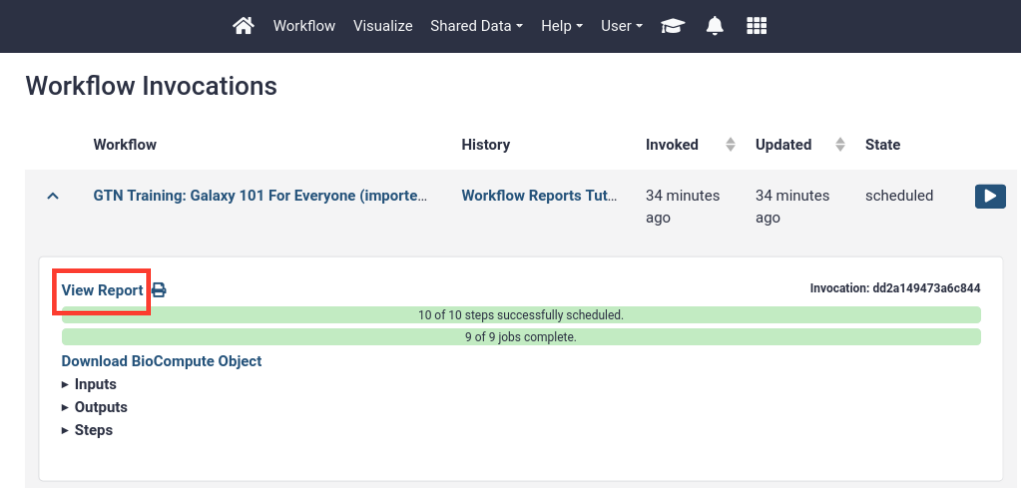
Workflow reports are a great Galaxy feature that enable you to define summary reports for any workflow to display the most important results in a single view. This tutorial will guide you through the basics of viewing, customizing, and sharing such workflow reports!
Full Story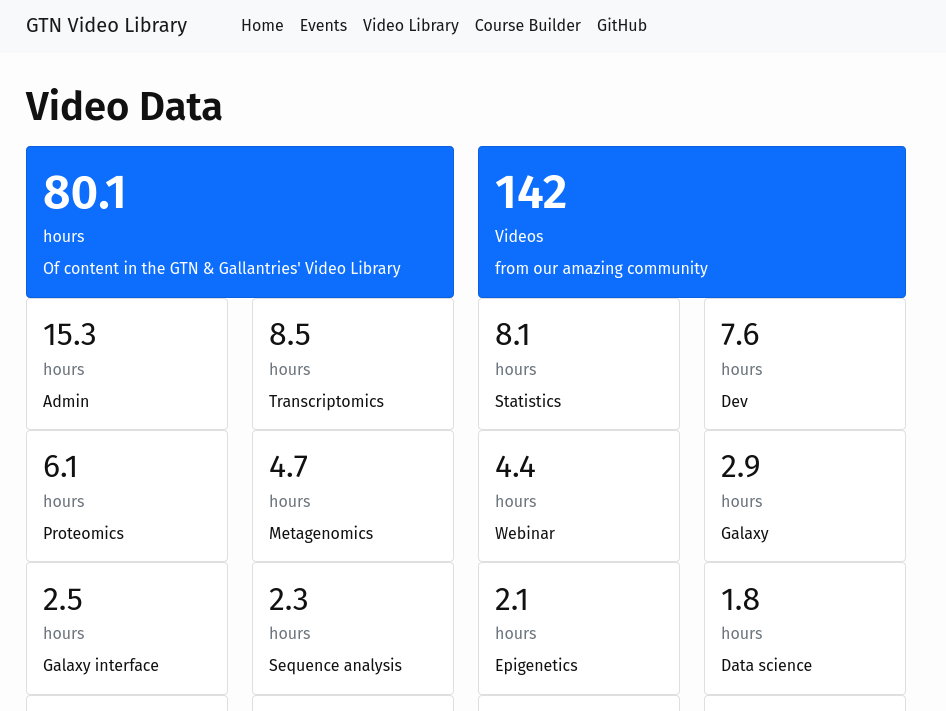
After runnning a number of virtual training events this year (e.g. Smörgåsbord, GCC2021), we now have a large collection of training videos around the GTN materials, created by this community.
Full Story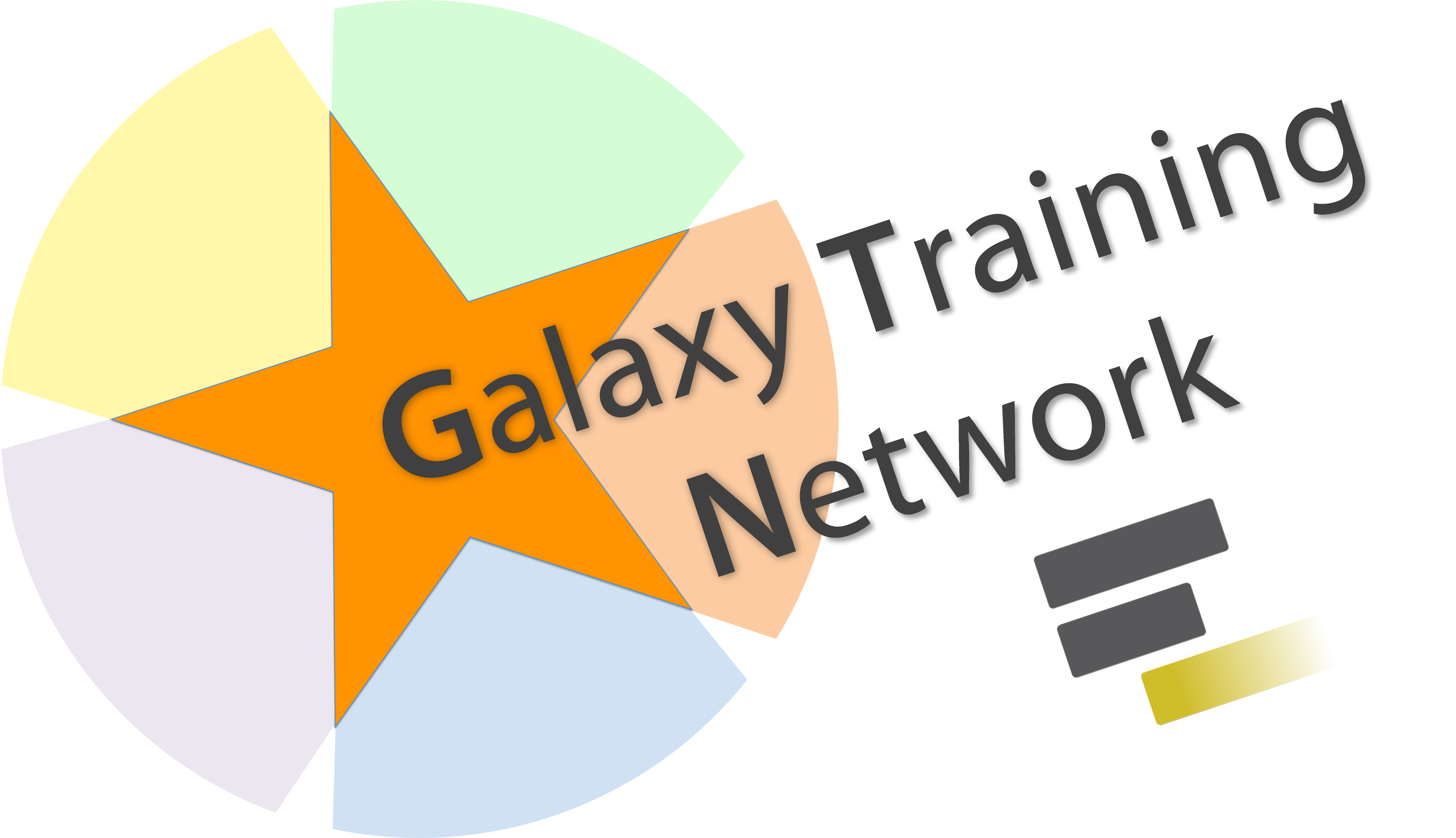
As part of our work under the Gallantries Grant we are establishing a new topic within the GTN specifically focused on Data Science skills. This topic will include tutorials covering things such as:
Full Story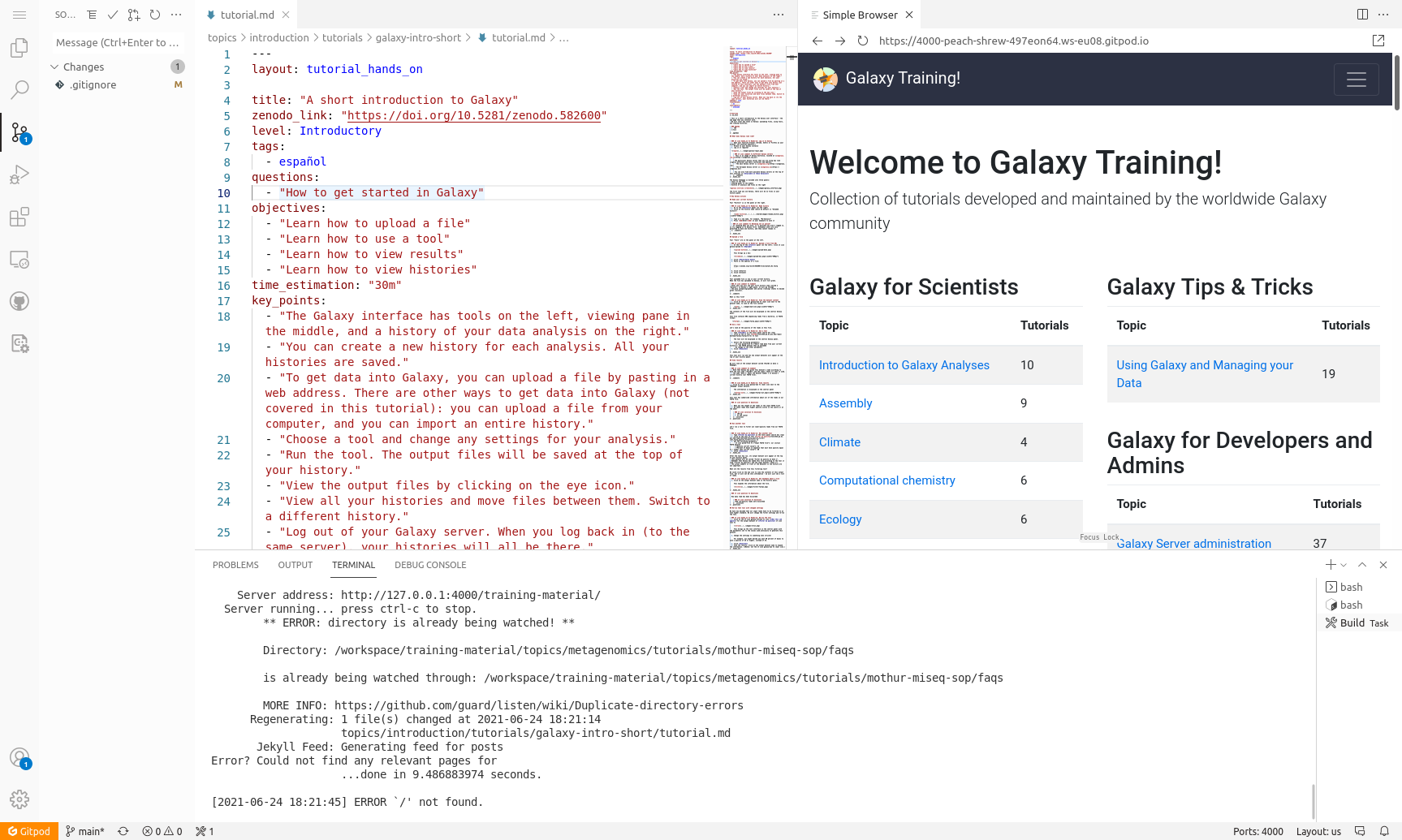
Want to contribute to the GTN without installing anything on your own computer? GitPod provides an online workspace for editing the GTN tutorials, and showing a live preview of the GTN website with your changes. This tutorial shows you how to set up GitPod, how to use it to get a live preview of the GTN website, and how to save any changes you make back to your GitHub fork. This makes it easier than ever to contribute to the GTN!
Full Story
Did you ever start teaching a GTN tutorial, only to realise something changed recently? Oh no! A while ago the GTN created an Archive to address just this concern. On every tag, we’d build a copy of the website which we would place online and never touch again. This way we’d have permanent online copies so that if someone needed to go back to an older version of the GTN, they could.
Full Story
¡El primer tutorial en español ya está disponible! Galaxy siempre ha tenido tutoriales traducidos automáticamente mediante Google-Translate, ahora nos estamos embarcando en un nuevo proyecto para estudiar la experiencia de aprendizaje con tutoriales en bioinformática traducidos por humanos. Nuestro objetivo es crear un paquete de tutoriales para el análisis de datos single-cell (célula única) en primera instancia, con el fin de estudiar su uso y utilidad en un taller para hablantes nativos de español. Agradecemos enormemente a las nuevas participantes Patricia Carvajal López y Alejandra Escobar-Zepeda (EMBL-EBI) así como a las miembros existentes de GTN Beatriz Serrano-Solano (University of Freiburg), Saskia Hiltemann & Helena Rasche (Erasmus-MC), por su arduo trabajo en este proyecto de traducción y mantenimiento y, por supuesto, a Wendi Bacon (The Open University/EBI) como líder de proyecto.
Full Story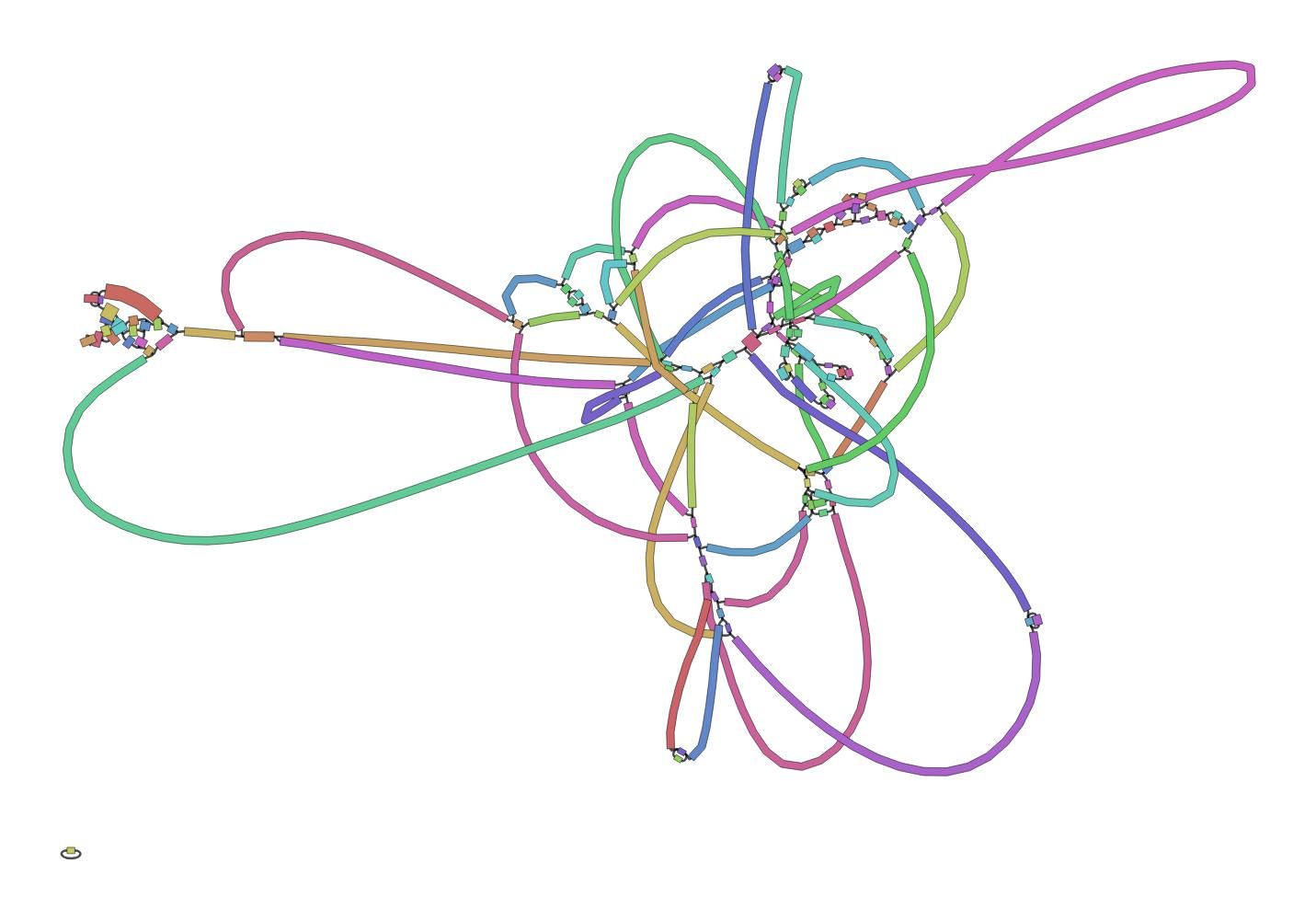
Two new assembly tutorials have been added to the GTN! These tutorials walk you through the process of assembling MRSA strains from real-world datasets. MRSA stands for “Methicillin- resistant Staphylococcus aureus, it is resistance to several antibiotics and is a common source of hospital-acquired infections and outbreaks. In this tutorial you will assess the quality of your data, perform an assembly and assess its quality, analyze your data for the presence of antimicrobial resistance (AMR) genes, and annotate the genome using Prokka and JBrowse.
Full Story
Snippets have received an major overhaul! Snippets/FAQs are small reusable bits of training, often answering a single question. In addition to the general Galaxy snippets, we now also support topic-level and tutorial-level FAQs. This will allow contributors to add common questions and answers to their tutorials, which not only can be included in the tutorial text itself, but are also used to autogenerate an FAQ page for the tutorial or topic listing all common questions (and answers).This will be useful both to participants following tutorials via self-study, and also to instructors preparing for a training event.
Full Story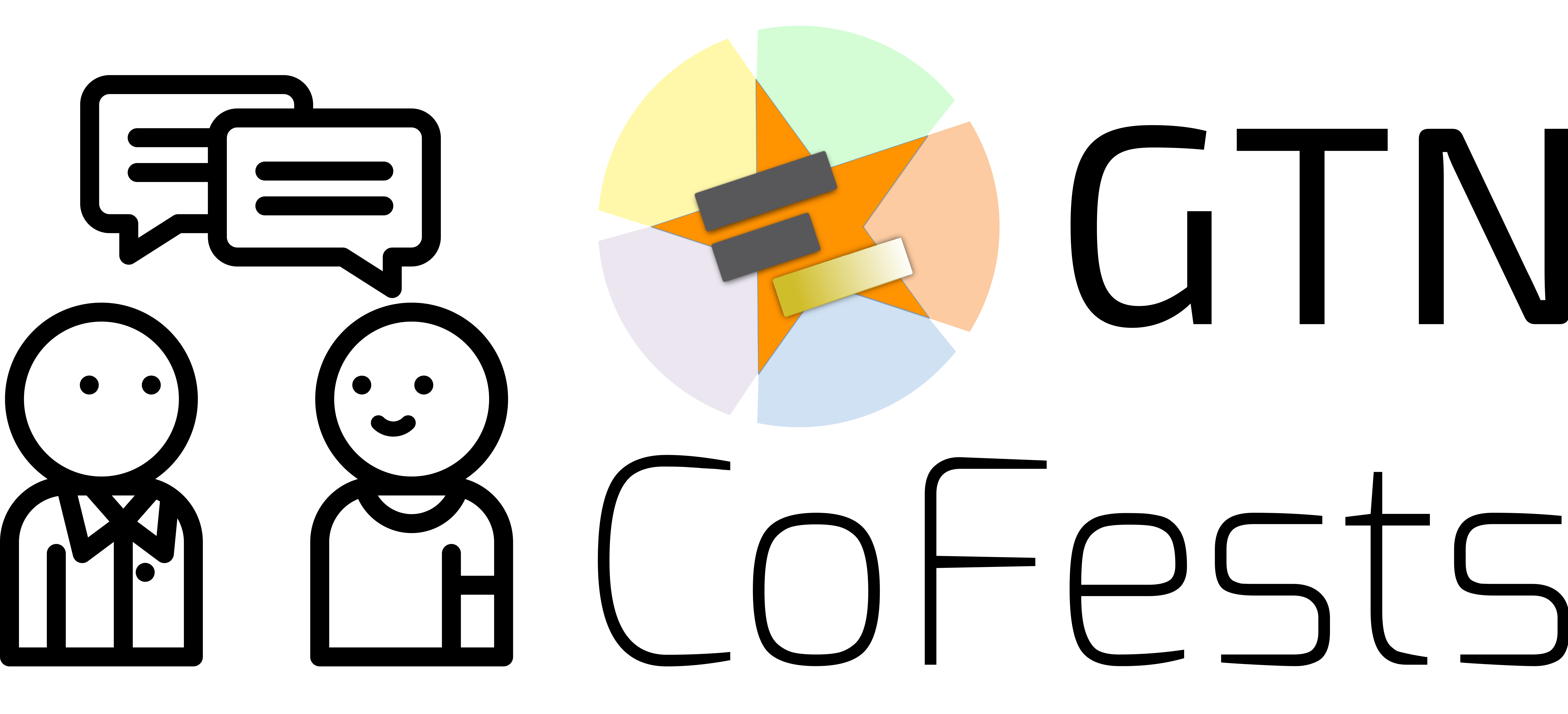
Every 3 months we organise one day dedicated to the GTN community! Thursday, May 20th is the next GTN CoFest. We will be working on the training materials, have discussions with the global Galaxy traning community. Do you teach with Galaxy? Want to learn how to add your tutorial to the GTN? New to the community and just want to learn more? Everybody is welcome!
Full Story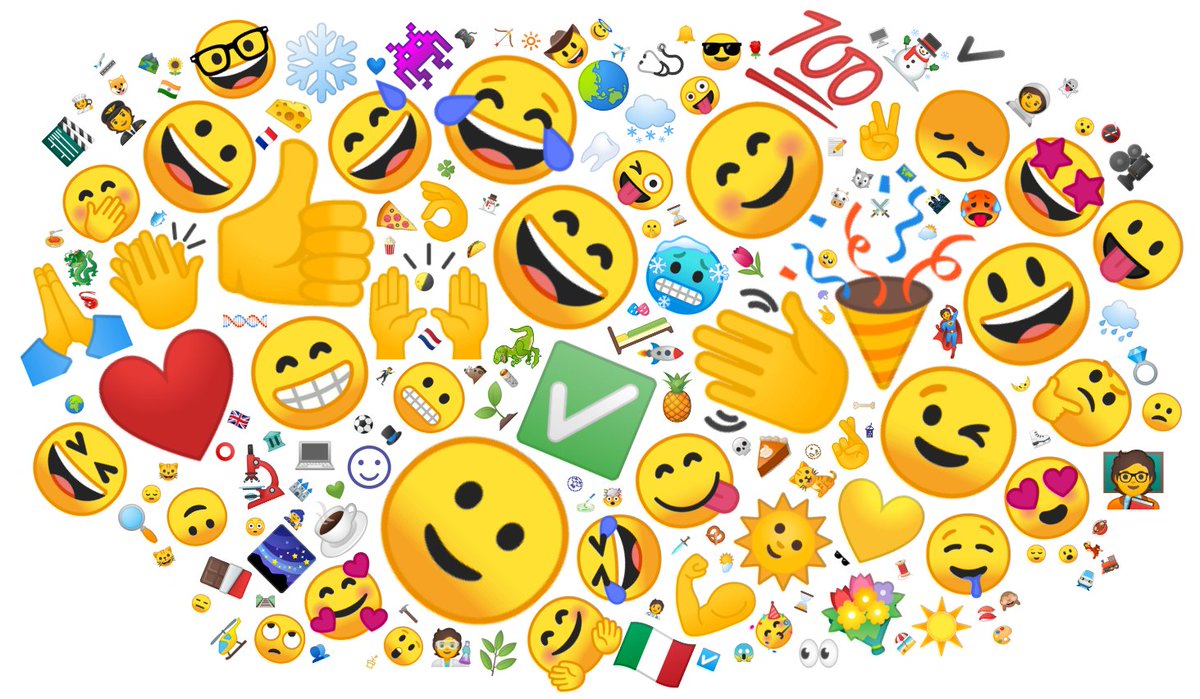
The GTN instructors community has just run the largest-ever Galaxy training event: “the GTN Smörgåsbord: A Global Galaxy Course”, co-organized with the Gallantries and the CINECA project and the Galaxy Training Network.
Full Story